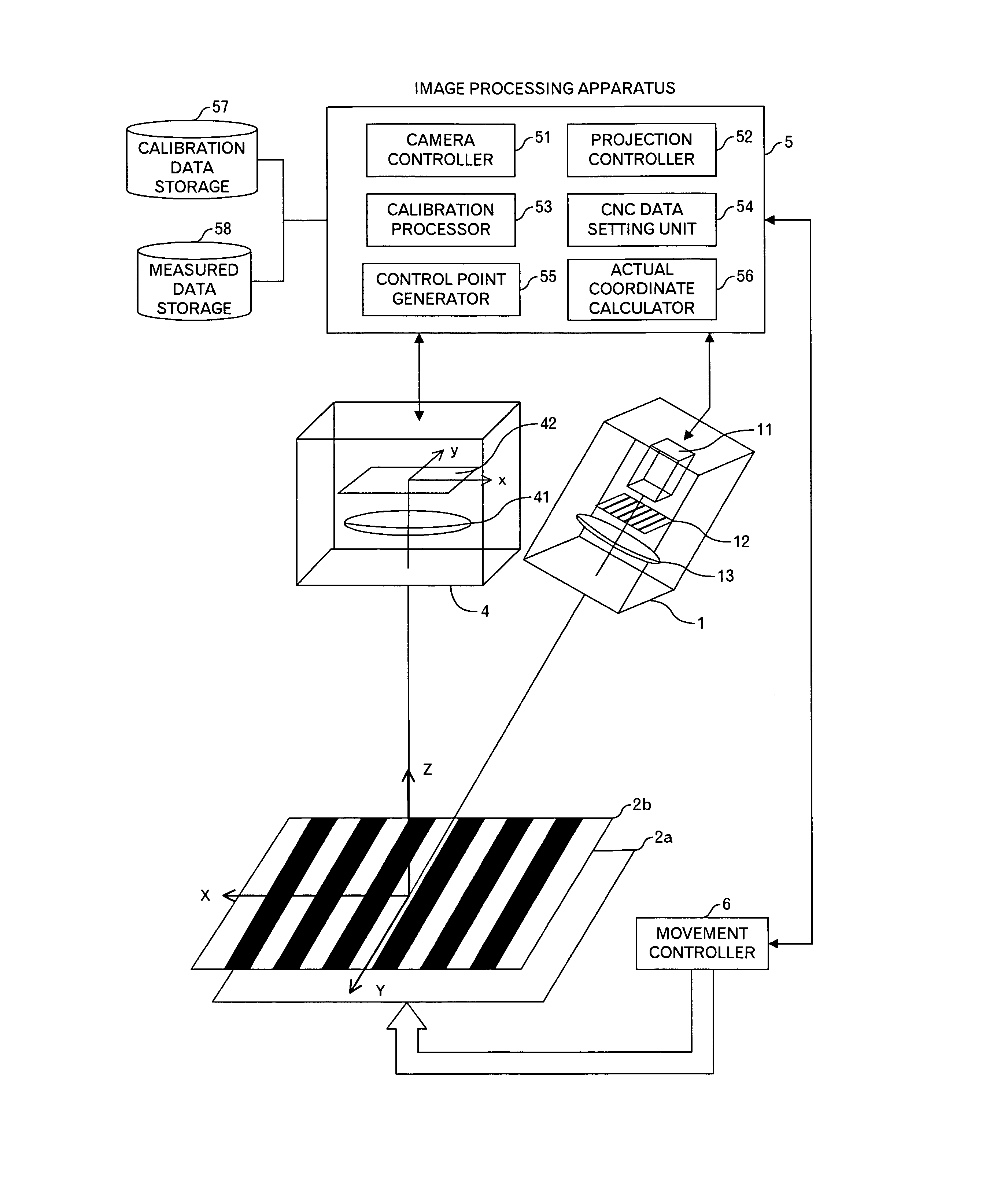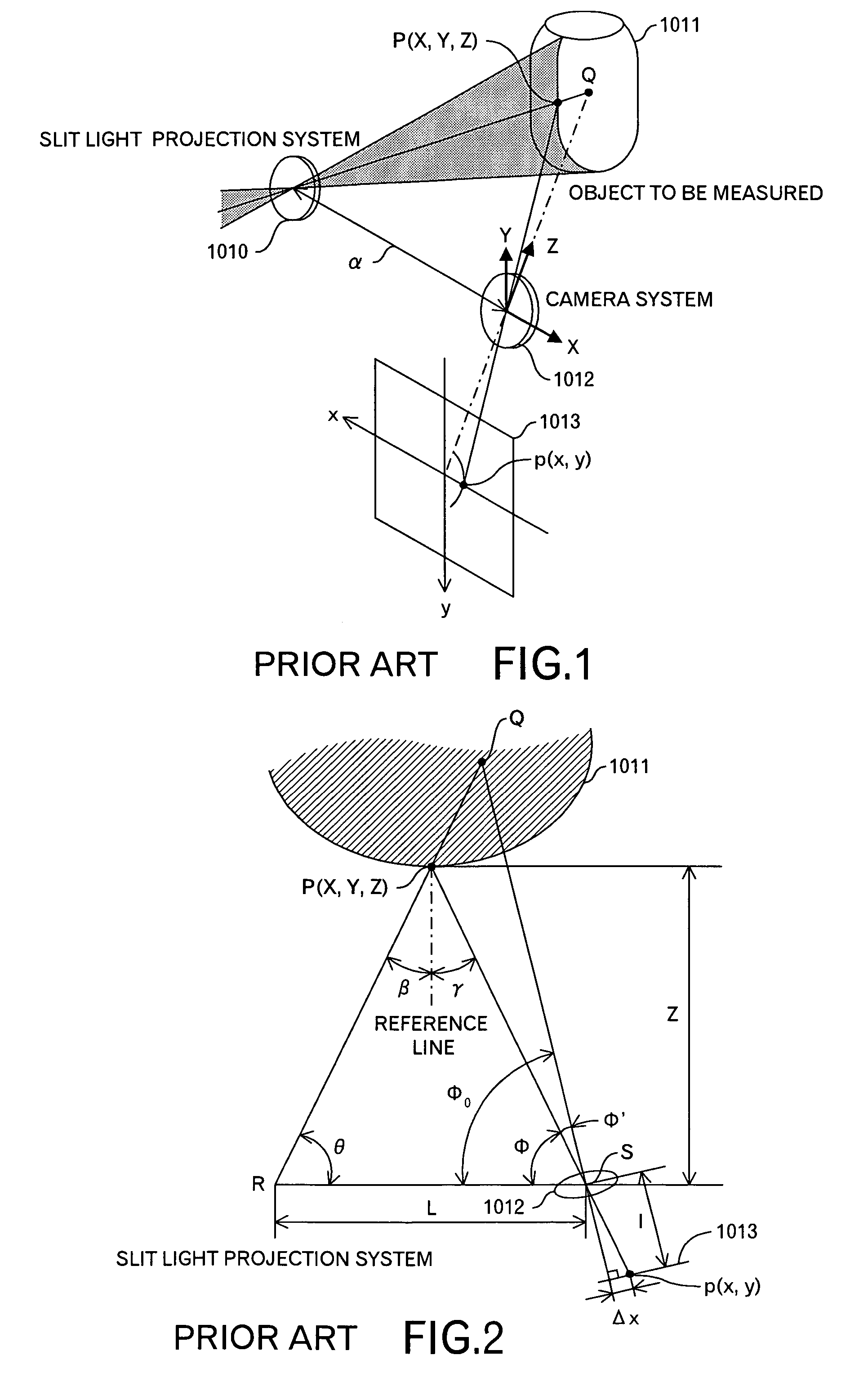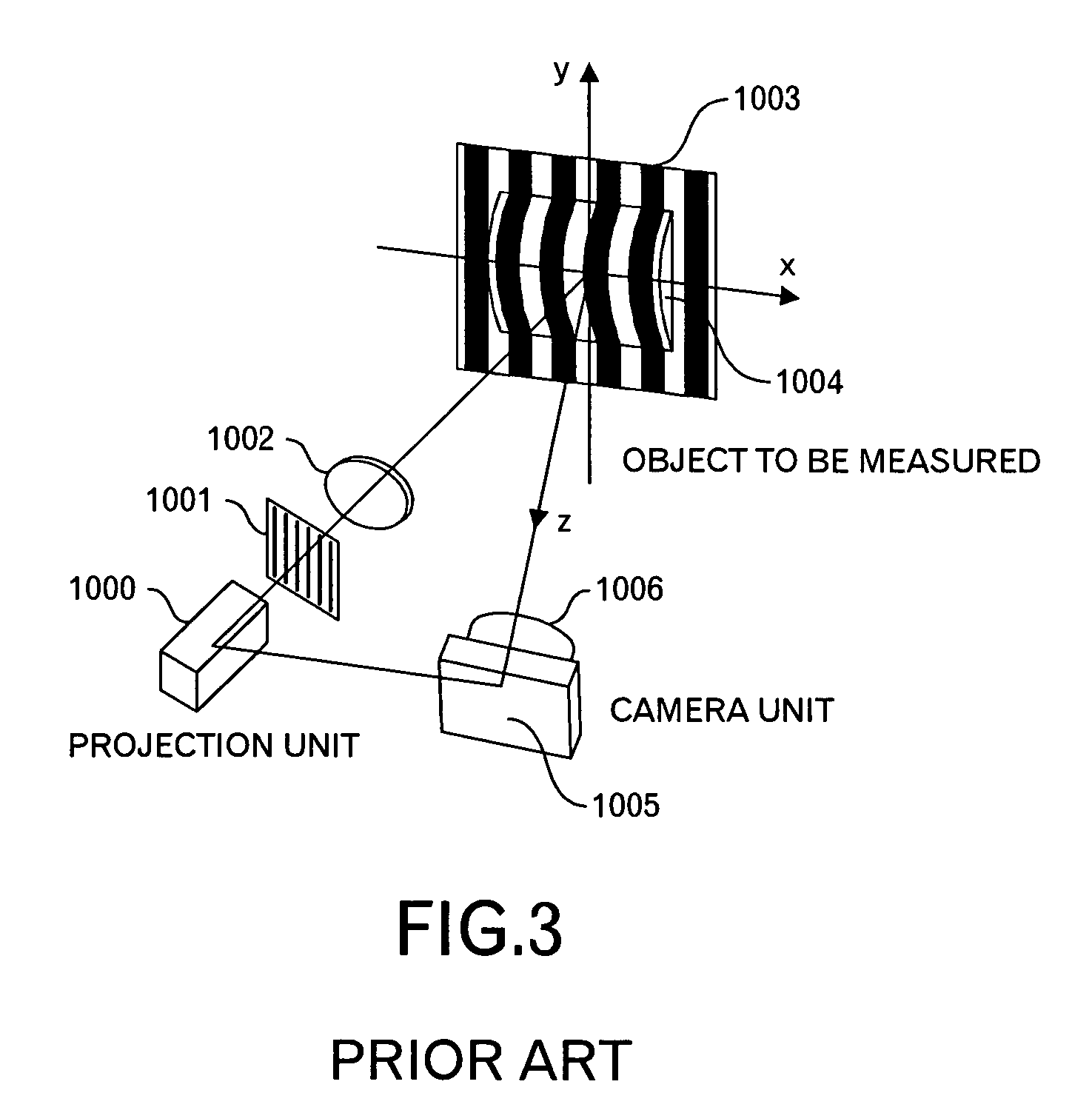Measuring technology and computer numerical control technology
a technology applied in the field of measuring technology and computer numerical control technology, can solve the problems of measurement error, reducing efficiency, and reducing the time required for measuremen
- Summary
- Abstract
- Description
- Claims
- Application Information
AI Technical Summary
Benefits of technology
Problems solved by technology
Method used
Image
Examples
first embodiment
[0090]FIG. 4 shows a functional block diagram in the first embodiment of the present invention using a fringe pattern projection method. A CNC apparatus (for example, a machine tool, but it is not intended to limit the CNC apparatus to the machine tool) including a measuring apparatus in this embodiment has: an image processing apparatus 5 that performs a main processing in this embodiment and is a computer; a liquid crystal projector 1 that is connected to the image processing apparatus 5 and has a projection unit 11 such as a lamp, a liquid crystal panel 12 forming a grating, and a lens 13; a camera 4 that is connected to the image processing apparatus 5 and has a lens 41, a CCD 42, and a memory (not shown); a reference plane 2 that is a reference plane at the time of calibration (however, it is assumed that a reference plane for height Z=Z1 is indicated as the reference plane 2a and that a reference plane for height Z=Z2 is indicated as the reference plane 2b); and a movement con...
second embodiment
[0165]Next, the configuration in a case of using the light section method will be described with reference to FIGS. 23 to 29. First, FIG. 23 shows a functional block diagram. A CNC apparatus including a measuring unit in this embodiment includes a image processing apparatus 2305 that performs a main processing in this embodiment and is a computer, a measurement unit 2330 having a projection unit 2301 that is connected to the image processing apparatus 2305 and projects slit light and a camera 2304, a reference plane 2302 that is used as a reference plane (where, it is assumed that a reference plane for height Z=Z1 is denoted by 2302a and that a reference plane for Z=Z2 is denoted by 2302b) at the time of calibration, and a movement controller 2306 that is connected to the image processing apparatus 2305 and controls movement at least in a Z direction of the reference plane 2302. The projection unit 2301 has a light source 2311 such as laser light source and a slit 2312. Further, the...
PUM
 Login to View More
Login to View More Abstract
Description
Claims
Application Information
 Login to View More
Login to View More - R&D
- Intellectual Property
- Life Sciences
- Materials
- Tech Scout
- Unparalleled Data Quality
- Higher Quality Content
- 60% Fewer Hallucinations
Browse by: Latest US Patents, China's latest patents, Technical Efficacy Thesaurus, Application Domain, Technology Topic, Popular Technical Reports.
© 2025 PatSnap. All rights reserved.Legal|Privacy policy|Modern Slavery Act Transparency Statement|Sitemap|About US| Contact US: help@patsnap.com



